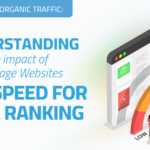How Automation Technologies Are Revolutionizing the Mortgage Industry

The mortgage industry has witnessed a significant transformation in recent years thanks to advancements in artificial intelligence (AI) and automation technologies.
These innovations have revolutionized various aspects of the mortgage lending process, from customer experience to document management and underwriting.
This article will examine how AI and automation are reshaping the mortgage industry and the benefits they bring to mortgage lenders.
Streamlining the Mortgage Application Process
Implementing AI and automation technology has brought about a considerable improvement in the mortgage application process. Automating various tasks achieves this, significantly reducing the time and effort borrowers and lenders require. AI-powered systems have made the process more efficient and streamlined, enhancing the overall experience for all parties involved.
Automated Data Collection and Verification
Applying for a mortgage has significantly improved thanks to the implementation of automated artificial intelligence (AI) systems. These advanced systems quickly and accurately gather and authenticate applicant information, effectively streamlining the entire application process. AI systems eliminate manual data entry and verification for mortgage brokers, making the application process more efficient and hassle-free.
AI can quickly analyze financial documents, credit scores, and income statements, saving time compared to humans. This has made the review process faster, so lenders can decide on mortgage applications more quickly and with better information.
Efficient Document Processing
When reviewing applicant documents, the manual process is time-consuming and prone to
errors and biases. Optical Character Recognition (OCR) technology is a smart and efficient solution. OCR simplifies document analysis by converting text into digital characters, making information organization easier and reducing review time. This leads to improved workflow and productivity, which is especially beneficial for the mortgage industry.
Enhancing Risk Assessment Capabilities
Integrating AI and automation technologies has also elevated the mortgage industry’s approach to risk assessment. These advancements allow lenders to filter through a wealth of data with precision, leading to more informed decisions. This benefits lending institutions and borrowers, as it results in more accurate and tailored mortgage options.
Comprehensive and Expedited Credit Analysis
Artificial Intelligence excels in processing large sets of data quickly and accurately. When it comes to evaluating an applicant’s creditworthiness, AI can quickly analyze credit reports, payment histories, and other financial indicators. AI enhances lending decisions by identifying patterns and trends that manual reviews may overlook. It also speeds up the process and makes it more reliable.
Streamlining Compliance and Regulation with AI
Compliance with rules and regulations has always been a critical yet challenging part of the mortgage industry. In the past, ensuring compliance was a labor-intensive task that left room for error. However, AI is transforming this aspect in a way that benefits both lenders and borrowers.
AI systems have the capability to understand the complex set of regulations that govern the mortgage industry. They can check applicant info to make sure it follows the rules, helping lenders catch problems early. This proactive approach minimizes the risk of legal complications, making the mortgage process more secure for everyone involved.
One of the standout features of using AI in this context is its ability to adapt to new regulations. As rules update or change, we can adjust the AI systems accordingly to ensure ongoing compliance. This adaptability is a significant advantage, keeping lenders up-to-date without requiring them to overhaul their procedures continually.
Beyond just adhering to rules, AI also offers valuable insights that can guide lenders in making more informed decisions. Lenders can provide good mortgage options for both parties by understanding compliance scenarios and being financially responsible.
Predictive Underwriting
Automated Underwriting Systems (AUS) have already streamlined the mortgage approval process. But AI is taking it up a notch by making underwriting predictive, not just automated. Machine learning algorithms analyze past loan data to spot trends that could indicate future defaults. This means lenders can make more accurate risk assessments.
What’s unique about predictive underwriting is its ability to consider a wide range of factors beyond just credit score and income. This gives lenders a fuller picture of a borrower’s financial health, leading to more accurate loan terms. AI will improve, making loan approval faster and more reliable for all involved as it evolves.
A More Personal Touch in Customer Service
Gone are the days when mortgage lenders had a one-size-fits-all approach to customer service. With the help of AI and automation, lenders can now offer a more tailored experience. These technologies can analyze customer interactions and preferences, allowing lenders to provide more personal and attentive service.
The goal is to make customers feel understood and valued. Chatbots and systems that remember preferences do this. They answer questions and improve future interactions.
Finding the Right Mortgage Just for You
AI goes beyond just crunching numbers; it helps lenders understand what you need as a borrower. AI can understand your finances by analyzing data like your income, credit history, and spending habits. This enables lenders to offer mortgage options that suit you better. Finding a mortgage that fits your budget and matches your goals and lifestyle is important.
Enhanced Personalized Communication through AI
In our busy lives, borrowers want fast and correct answers to their questions about work, family, and other responsibilities. AI-driven chatbots and virtual assistants meet this need by offering real-time, personalized communication anytime, day or night. Unlike generic customer service platforms, these advanced systems can understand the nuances of individual inquiries.
If a borrower doesn’t understand mortgage terms, the virtual assistant can explain them clearly, removing any confusion. AI platforms can help people understand the mortgage application process by giving them clear instructions and guidance at each step.
Virtual assistants can adjust their answers based on the context of the questions, which is a major advantage. This level of personalized interaction simplifies the mortgage process and enhances overall customer satisfaction.
Customized Educational Content for Every Borrower
Understanding mortgages can be complex, but educational content shouldn’t be. Tailored information can make a significant difference in helping borrowers grasp the nuances of mortgage options, financial management, and homeownership. By tailoring the content to suit each person’s comprehension and interests, the learning becomes more effective and interesting.
Guided Financial Planning for Long-term Success
Navigating the financial aspects of a mortgage doesn’t have to be a solo endeavor. With the help of data analysis, borrowers can receive personalized financial planning advice. This guidance helps people make better decisions that match their current needs and future financial goals, leading to more financial stability.
Continued Support After Loan Closure
The mortgage process doesn’t end at the closing table; it’s just the beginning of a long-term financial commitment and relationship. Ongoing support can be invaluable for borrowers, offering timely reminders for upcoming payments and alerts for potential refinancing opportunities. This level of sustained assistance helps borrowers manage their mortgages effectively while also keeping an eye on other financial opportunities.
Social Media Analysis in Mortgage Lending
Social media analysis is an emerging trend in the mortgage industry, enabled by AI and automation technologies. By analyzing social media posts and interactions, lenders can gain insights into borrowers’ financial behavior, preferences, and potential risks. Social media analysis can help lenders make more informed lending decisions and personalize their offerings based on borrowers’ social media profiles.
Streamlining Referral Marketing with Automation
In the mortgage industry, a good word from a satisfied customer can be worth its weight in gold. That’s where automation comes into play in referral marketing. Keeping track of who referred whom and offering appropriate rewards can be a logistical challenge.
Automation simplifies tracking and rewarding, helping lenders grow their referral networks effortlessly. The payoff is twofold: not only does it lead to acquiring new customers, but it also helps retain existing ones. Effective referral marketing can be a game-changer in a competitive market, and automation is the tool that makes it happen.

Navigating the Complexities: Challenges and Concerns in AI and Automation
AI and automation in mortgages have benefits, but we must also think about the problems and worries they bring. One of the most pressing issues is the potential for bias in AI algorithms. If not carefully managed, these algorithms could inadvertently favor or disadvantage certain groups of borrowers, raising questions about fairness and equality.
Data security is another significant concern. Processing vast amounts of sensitive financial information constantly worries us because of the risk of data breaches or unauthorized access. Lenders must invest in robust security measures to protect both their interests and those of their clients.
Lastly, we shouldn’t underestimate the role of human expertise. While technology can handle many tasks, the importance of relationship-building in the mortgage industry remains high. A machine can analyze data, but it can’t replace the nuanced understanding and trust that a human advisor can offer. Therefore, lenders must find the right balance between automation and human interaction to ensure both efficiency and customer satisfaction.
Lenders can use AI and automation responsibly and ethically by acknowledging and tackling challenges. This will help ensure that these technologies are beneficial instead of harmful.

The Future of AI and Automation in the Mortgage Industry
The future of AI and automation in the mortgage industry is promising. As technology improves, AI algorithms and automation tools will greatly change the way we process mortgages.
AI and automation will keep changing the mortgage industry, improving document analysis, fraud detection, customer experiences, and decision-making.
Conclusion
Artificial intelligence and automation have brought significant advancements to the mortgage industry, revolutionizing the way lenders operate and interact with borrowers. AI and automation help mortgage lenders with faster applications, better risk assessment, and personalized customer experiences.
Lenders need to use technology responsibly, considering issues like bias, data security, and the value of human knowledge.
AI and automation in mortgages will improve efficiency, accuracy, and customer satisfaction, with more advancements on the way.
To learn more or schedule a demo, contact BNTouch today.
The post How Automation Technologies Are Revolutionizing the Mortgage Industry appeared first on .







